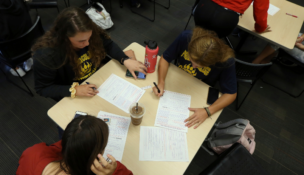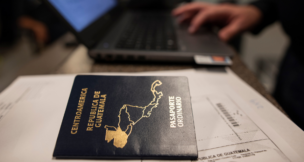Federal court clears way for students group to sue regents, Legislature
Howard Fischer, Capitol Media Services//June 1, 2016//[read_meter]
Federal court clears way for students group to sue regents, Legislature
Howard Fischer, Capitol Media Services//June 1, 2016//[read_meter]
Saying there’s evidence of illegal retaliation, a federal appeals court gave the go-ahead Wednesday for the Arizona Students Association to sue the Board of Regents to get back money the group says was illegally withheld.
In a unanimous ruling Wednesday, the 9th U.S. Circuit Court of Appeals said there was enough evidence to support the claim that the regents financially undermined the student group because of its support of a 2012 initiative to hike taxes for education. That measure was opposed by Gov. Jan Brewer, Republican lawmakers and several board members.
Appellate Judge Richard Paez, writing for the court, acknowledged nothing in law ever actually required the regents to collect a fee from students to run the association and support its political activities.
“But having done so for 15 years at no cost, ABOR could not deprive ASA of the benefit of its fee collection and remittance services in retaliation for the ASA’s exercise of its First Amendment rights,’’ Paez wrote. And he said the sudden change by the governmental agency in depriving the association of the benefits of the free collection is “sufficiently valuable to give rise to a retaliation claim.’’
Wednesday’s ruling, however, does not mean money will again start flowing to the association. Unless overturned on appeal, all it means is the trial judge who initially threw out the case now will have to consider it.
But attorney Stephen Montoya who represents the ASA said the decision also paves the way to challenge a subsequent vote by the Legislature, also aimed at the student association, to make it illegal for the regents to use its billing system to collect any fee for any organization not under the board’s jurisdiction. He said that means the association could get back not only the money the board has previously withheld but could force the state to reinstate the $2-a-semester fee on students that raises more than $500,000 a year to fund the association’s political and other activities.
Board spokeswoman Sarah Harper said the regents will discuss the ruling with lawyers at their next meeting to decide what action to take.
According to court records, the regents directly funded the association from 1974 through 1988.
That year students voted to impose a one-dollar-per-student fee each semester; it was increased, also by student vote, to $2 in 2008.
Under the policy, those who objected could request a refund.
All that changed in 2012 during the debate over Proposition 204, a measure that would have made permanent a temporary one-cent sales tax increase approved by voters two years earlier. A large portion of those funds were earmarked for education, including some for the universities.
Paez said the association was involved in drafting the initiative, collected more than 20,000 signatures to get the measure on the ballot, campaigned for it and used $120,000 of its student-fee income to promote its support.
Brewer, who as governor also sits on the board, opposed the measure. And some regents criticized the association for its support.
It ultimately failed.
Just weeks after the election, Paez said the regents called a special meeting specifically to discuss the student fee. At that meeting the board voted to suspend collection of the fee and withhold the income it already had collected for the spring 2013 semester.
“Several regents commented that the suspension was ‘political’ in nature and was undertaken in response to the ASA’s Proposition 204 advocacy,’’ Paez wrote.
Several weeks later the board had another special meeting, changing its policies to collect the fee only from students who “opted in,’’ turning the “opt-out’’ policy on its head. The regents also voted to require the association to reimburse the universities for the administrative cost of collecting the fees.
The association sued, charging that the regents’ action violates the associations’ constitutional free-speech rights, “causing a chilling effect on ASA’s political speech’’ and depriving it of its only source of income.
And there was something else: After implementing the opt-in policy, the board never remitted the fees already paid by students for the spring 2013 semester.
“It’s several hundred thousand dollars that was never returned,’’ Montoya said. “But that is ASA’s money and we want it.’’
Shayna Stevens, the association’s executive director, said the group now functions without student fees. She said it makes some money through grants for things like registering students to vote.
Stevens said while the association wants the funding restored, it was “never about the money.’’ She said the case will hopefully set a precedent that regents — and lawmakers — cannot use the threat of undermining funds to silence a student group for political reasons.
“ASA is not the first student association that something like this has happened to,’’ Stevens said.
When the legal fight goes back to federal court it will take on an entirely new tenor.
Montoya said the original lawsuit focused solely on the regents’ decision to change how it would collect the fee. But he said the 9th Circuit ruling also allows him to attack the 2013 law forbidding the regents from collecting the fee at all.
“So we’ll just amend our complaint to include a First Amendment retaliation challenge to the new statute,’’ he said. Montoya said there is more than enough evidence to show that the 2013 law was approved solely to target the ASA because of its support of Proposition 204.


















